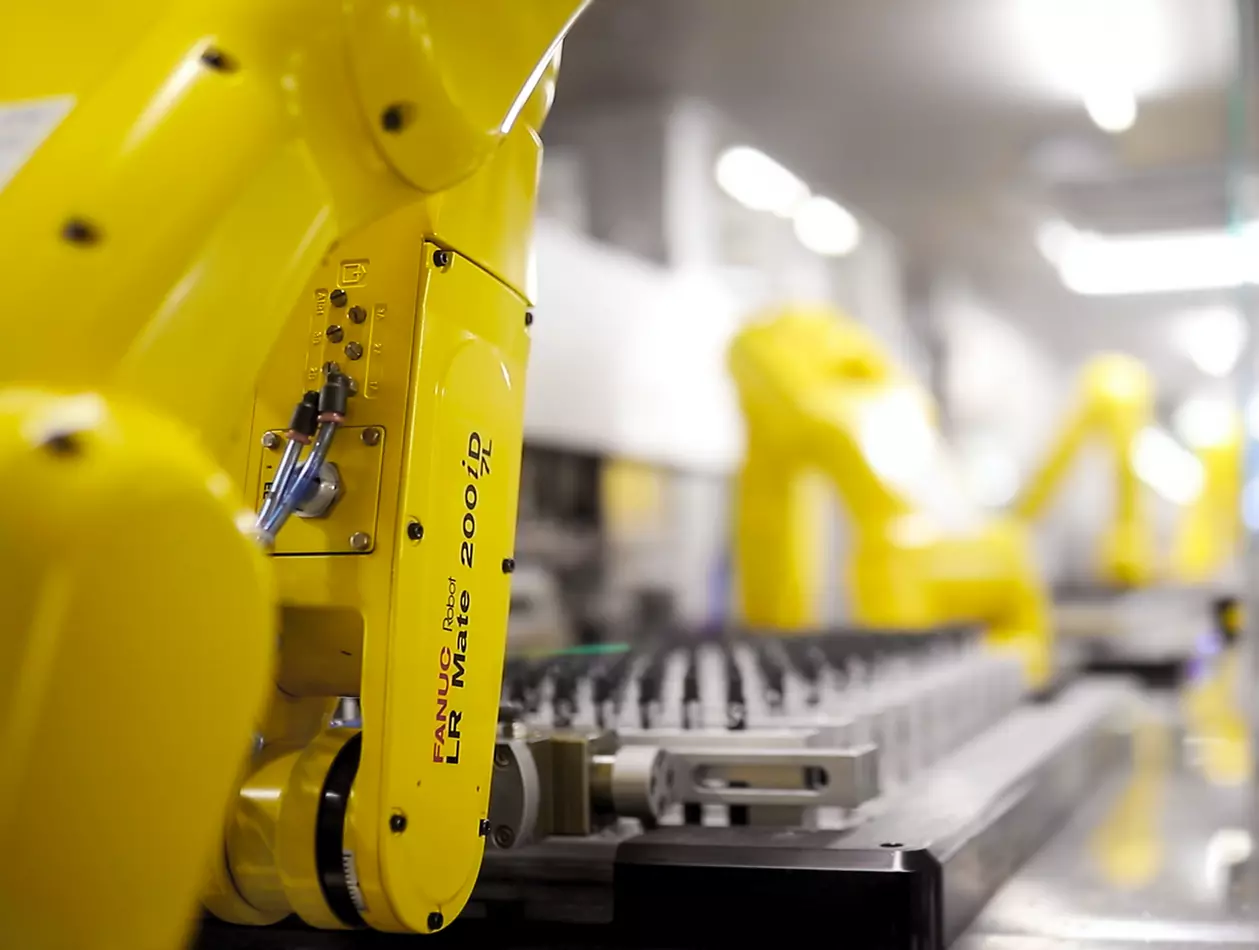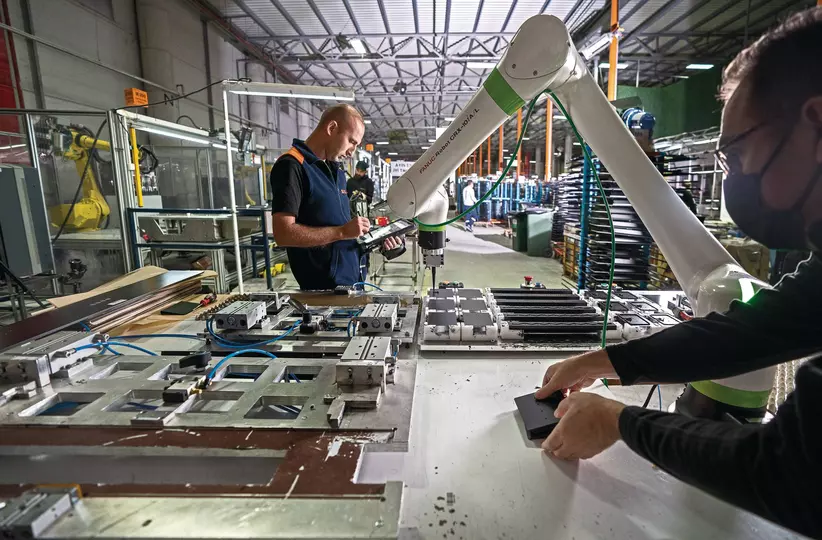

Estudos de caso
Descubra como os nossos clientes crescem em conjunto com a FANUC. Nos nossos Estudos de Caso, eles partilham a sua experiência de operação, desenvolvimento e automatização com produtos FANUC.
Descubra o impacto da FANUC nos nossos clientes
Bem-vindo à página de estudos de caso da FANUC, onde a inovação encontra a aplicação.
Mergulhe em exemplos reais de como as nossas soluções de automação de ponta estão a transformar as indústrias em todo o mundo. Desde o aumento da eficiência até aos avanços pioneiros na robótica, os nossos estudos de caso apresentam os benefícios tangíveis e as histórias de sucesso de empresas que estabeleceram parcerias com a FANUC.
Explore como o nosso compromisso com a precisão, fiabilidade e melhoria contínua está a impulsionar a produtividade e o crescimento de empresas como a sua. Junte-se a nós para explorar o futuro da automação.

